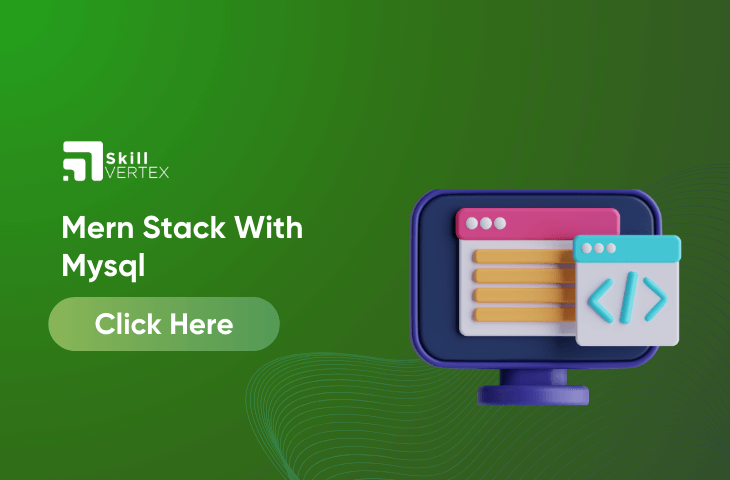Table of Contents
MERN Stack with MySQL
The MERN stack, made up of MongoDB, Express.js, ReactJS, and Node.js, is commonly used for web development. But guess what? You can switch out MongoDB for MySQL, a different kind of database. This change comes with its own set of good things and challenges compared to the regular MERN setup.
Advantages of Using MySQL with MERN:
- Structured Data: MySQL organizes data in tables and relationships, making it easy to manage and find specific information.
- Familiarity: Many developers know SQL and relational databases, so using MySQL in MERN is familiar territory.
- Performance Boost: In certain situations, MySQL might be faster than MongoDB, especially for tasks that involve reading a lot of data.
- Transactions: MySQL supports transactions, ensuring data stays consistent when you’re doing multiple things at once.
How to Use MySQL with MERN:
Here’s how you can mix MySQL into the MERN stack:
1. MySQL:
- Get a MySQL database server and set up the structure for your data.
- Pick a MySQL driver for Node.js, like
mysql2ormysql.
2. Express.js:
- Use your chosen MySQL driver to connect to your database within your Express.js app.
- Set up routes in Express to handle database actions like creating, reading, updating, and deleting.
3. ReactJS:
- Use tools like
axiosorfetchto send requests from React to your Express.js API for talking to the MySQL database. - Show and interact with the data you get back in your React components.
4. Node.js:
- Put the MySQL driver to work in your Node.js code to do things in the database directly or through your Express.js routes.
- Write the logic and code to manage and manipulate data using Node.js.
Learning about MERN with MySQL
- MERN Stack Tutorial | MySQL, Express, React, Node.js | Episode 01: Watch here
- React Node.js MySQL Full Stack Blog App Tutorial: Check this out
- MEAN Stack with MySQL: Learn more
- Can we change the MongoDB to MySQL in MEAN stack?: Read this discussion
More Things to Think About:
- Not for Flexible Data: MySQL doesn’t handle flexible data like MongoDB does since it’s all about tables and relationships.
- Learning New Stuff: If you’re used to MongoDB, you might need to learn SQL and how relational databases work.
- Set Structure Early: MySQL’s fixed structure might mean you need to plan more before you start.
In a nutshell, using MySQL with the MERN stack can be a good choice if you want organized data, know SQL, or need a potential speed boost. But, like with everything, it’s smart to think about what your project needs before picking between MySQL and MongoDB.
FAQ- Mern Stack With Mysql
Q1. Is SQL used in MERN stack?
Ans. The MERN stack’s database tier features MongoDB, a NoSQL database that stores data in JSON-like documents. Consequently, the MERN stack does not use SQL, as it relies on a document-based approach instead.
Q2. Which is faster MySQL or MongoDB?
Ans. MongoDB outperforms MySQL in storing unstructured data because it doesn’t require a predefined schema. This flexibility allows for faster data read and write processes as all entity information is stored in a single document.
Q3. Why MySQL is better than MongoDB?
Ans. MySQL excels in speed when selecting a large number of records. In contrast, MongoDB, being schema-less, offers flexibility for handling unstructured, semi-structured, and structured data. MySQL’s rigid schema is particularly well-suited for structured data.
Hello, I’m Hridhya Manoj. I’m passionate about technology and its ever-evolving landscape. With a deep love for writing and a curious mind, I enjoy translating complex concepts into understandable, engaging content. Let’s explore the world of tech together

